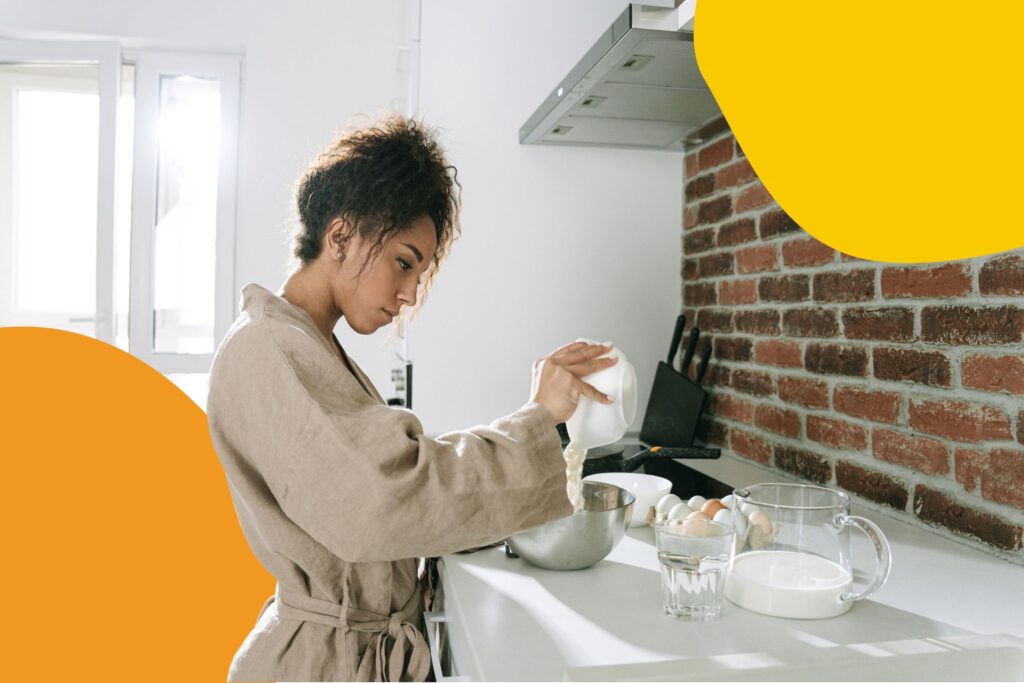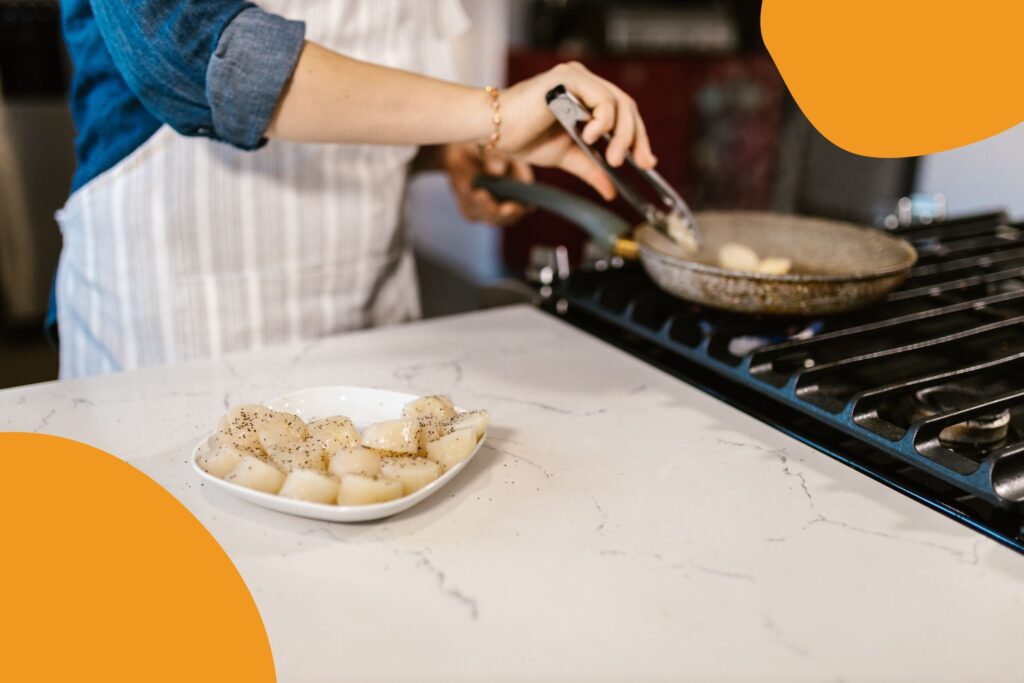When considering a comprehensive kitchen makeover, we think it’s fair to say that worktops and surfaces are a consideration more functional than fun. Sure, you might get a little hot under the collar about the prospect of a new AGA, and pulses may begin to race when you consider the latest KitchenAid, Nutribullet and air fryer.
There’s certainly some glamour to be found in the purchase of new chef’s knives and a sharpening stone, too, but worktops? Nope, we’re left pretty cold. We can only assume you’re the same.
But be honest for a second; what’s the first thing you see when you walk into a new kitchen? That’s right; in your eyeline and dominating the visual space of most kitchens are, you guessed it, worktops.
It pays, then, to make sure yours are as sparkling clean and spotless as possible, particularly if you’ve spent good money on a luxurious granite or quartz counter.
All kitchen worktops need to be cleaned and properly maintained to maximise both their durability and aesthetic potential, but when considering granite or quartz, it’s absolutely essential you keep them clean. Today, we’re exploring how to do just that…
How Do I Keep My Granite Kitchen Worktops Clean?
Granite is one of the most durable materials in the world, and if you choose to have a granite worktop installed, you will likely never need a replacement worktop again. Of course, that means the material commands a higher price, but with the right care and cleaning, granite does represent a worthwhile investment.
As they are so tough, granite worktops are extremely resistant to scratching, cracking and heat. However, this does not mean they can not be stained. It is recommended that for everyday cleaning of a granite countertop, use warm or hot soapy water with a clean soft cloth then simply dry with a microfibre cloth. Do not use any harsh chemicals that can damage the stone.
Granite is a porous material and any exposure to acidic liquids like lemon juice, beetroot, and wine may dull the stone surface. Be particularly careful when using these ingredients or similar.
As Melrosa, granite kitchen worktop suppliers based in Greater Manchester, recommend, your granite countertops should be resealed once a year, to ensure that they last. The good news is that this can be done yourself, if necessary.
Check out WikiHow’s useful guide on how to seal granite countertops here for more on that.

How Do I Remove Stains From Granite Countertops?
Daily cleaning is enough to keep your granite countertop in good condition the majority of the time, but if you do still manage to stain it (hey, we’re all a little clumsy sometimes), you will need to do a bit more of a deep clean to ensure that staining isn’t a more permanent fixture of your kitchen.
Applying some baking soda paste can help remove the offending stain. Simply mix with water and apply to the stained area and scrub with a soft cloth and dry with a microfibre cloth. If the process doesn’t remove the stain, try again and leave the paste in place overnight or even for a few days. Then rinse and wipe the granite with a soft cloth to hopefully reveal a stain-free surface.
Read: 10 professional home cleaning hacks
How To Keep Quartz Kitchen Worktops Clean?
But what about granite’s countertop cousin quartz?
Fortunately, quartz kitchen worktops don’t require any special cleaning if you take care of it daily, which only requires a few minutes of your time. For daily cleaning, all it takes is a soft microfibre cloth with a splash of washing up liquid and warm water to wipe down the countertops and remove any detritus and debris.
If any stains remain, spray the surface with window cleaner and wipe away with a microfiber cloth. Your quartz countertops will look brand new! However, just like granite, never use bleach or other harsh chemicals on your countertops and avoid abrasive cleaners or sponges. Anything that’s rough or gritty could damage the finish.
The good news is that because quartz is not porous and completely solid, there is no need to have your countertops resealed – therefore in terms of maintenance, quartz requires less than granite.

So, Which Is More Durable?
Both worktops are extremely durable and there isn’t much difference in the strength of them. However, if you wanted to choose sides – and let’s face it, that’s why you’re here – then quartz is actually harder.
While both are heat resistant (that is unless you take a blowtorch to them) and can withstand the heat of pots and pans without any damage, as mentioned above quartz is also nonporous scratch-resistant, and practically maintenance-free, giving it the edge in the durability stakes.
Either way, we can’t wait to see your new kitchen in all its glory. Can we expect an invite for dinner anytime soon?





